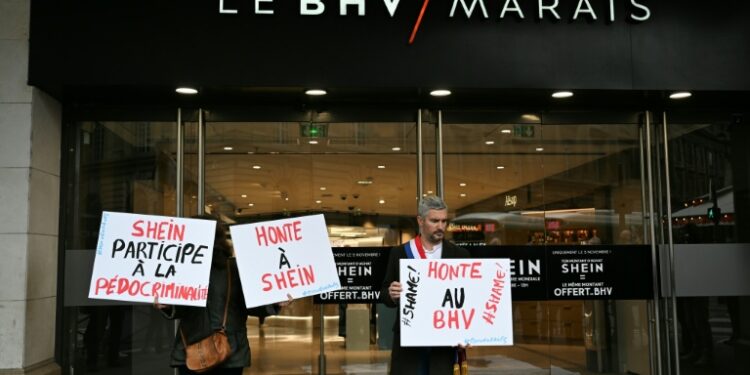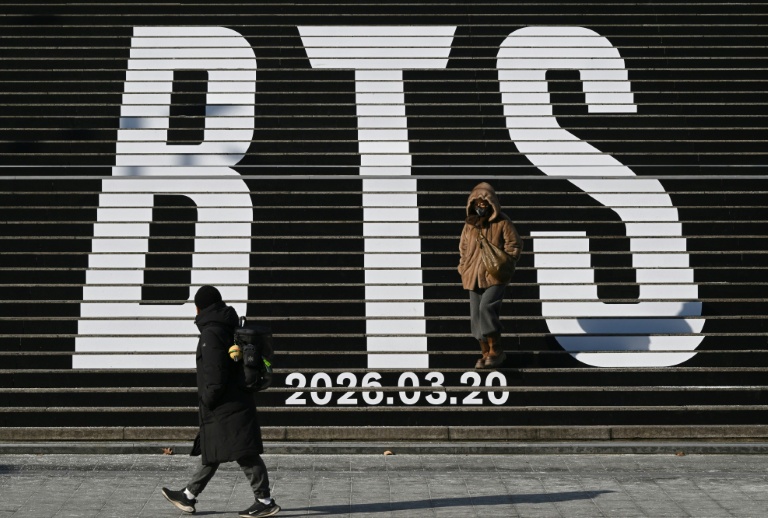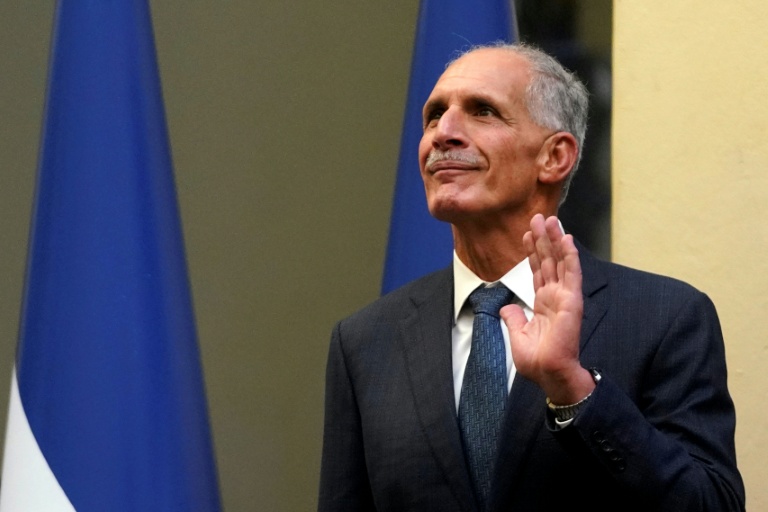Paris (AFP) – Asian e-commerce giant Shein Tuesday pledged to “cooperate fully” with French judicial authorities after an uproar over it selling childlike sex dolls, and said it was prepared to disclose the names of people who bought them. The controversy comes as the ultra-fast fashion giant is set to open its first bricks and mortar store in the world, in the prestigious BHV department store in central Paris on Wednesday.
“We will cooperate fully with the judicial authorities,” Shein’s spokesman in France, Quentin Ruffat, told RMC radio, adding the company was prepared to share the names of those who have bought such dolls. “We will be completely transparent with the authorities,” he said. “We will put the necessary safeguards in place to ensure that this does not happen again,” Ruffat added.
The Paris prosecutor’s office said it had opened investigations against Shein, and also rival online retailers AliExpress, Temu and Wish, over the sale of sex dolls. The probes were for distributing “messages that are violent, pornographic or improper, and accessible to minors,” the office told AFP. The investigations were launched after France’s anti-fraud unit reported on Saturday that Shein, a Singapore-based company which was originally founded in China, was selling childlike sex dolls. French media published a photo of one of the dolls sold on the platform, accompanied by an explicitly sexual caption. The pictured doll measured around 80 centimetres (30 inches) in height and held a teddy bear.
Ruffat described what had happened as “serious, unacceptable, intolerable.” He chalked up the sale of the dolls to “a malfunction in our processes and governance.”
On Monday, Shein announced it was imposing a “total ban on sex-doll-type products” and had deleted all listings and images linked to them. Shein’s meteoric rise has been a bane for traditional retail fashion companies and, even before the uproar over the dolls, the arrival of Shein in the fashion capital had sparked controversy. Critics fear that Shein will further hurt stores in France that have had to lay off staff or close. “Shein in France. Who can stop it?” left-leaning French daily Liberation said on its front page.
Frederic Merlin, the 34-year-old director of the SGM company that operates BHV, has been criticized for partnering up with Shein, which has been accused of unfair competition, environmental pollution and poor working conditions. Merlin admitted on Tuesday that he considered pulling the plug on the partnership with Shein after the latest uproar. “It’s despicable,” he told broadcaster RTL. “I find it sickening to know that we can freely sell this kind of stuff on the internet,” Merlin added. But he said he had reconsidered, adding that Shein’s stance and readiness to cooperate with the French authorities “convinced me to continue.” He said he was confident about the Shein products that will be sold at the department store, and denounced a “general hypocrisy” surrounding Shein and its “25 million French customers.” He expressed hope that the Asian giant would help increase footfall at the department store.
Shein is also scheduled to open several shops in Galeries Lafayette department stores run by SGM in other parts of France. But the Galeries Lafayette group has refused to be associated with Shein. On Tuesday, it ended a partnership with SGM, likely meaning it will withdraw its name from seven such department stores in France, including in the cities of Dijon and Grenoble, the group and SGM said. The mayor of Dijon, Nathalie Koenders, deplored Shein’s upcoming arrival in her city, calling on legislators and European institutions to take action.
On Monday, an association fighting to protect children from all forms of violence staged a protest in front of the BHV department store in Paris. “Shame on Shein,” one of the signs read. “Shein has to pay, politically speaking,” said Arnaud Gallais, co-founder and president of the Mouv’Enfants association.
© 2024 AFP






















